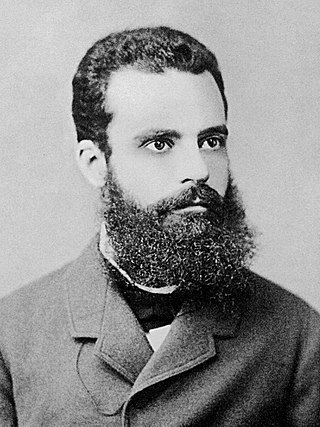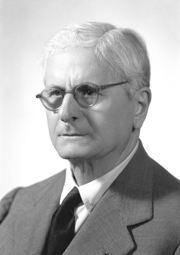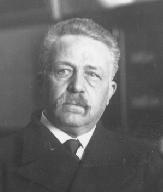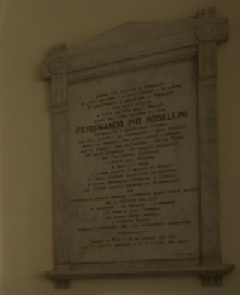Related Research Articles

The Pareto principle states that for many outcomes, roughly 80% of consequences come from 20% of causes.

Vilfredo Federico Damaso Pareto was an Italian polymath, whose areas of interest included sociology, civil engineering, economics, political science, and philosophy. He made several important contributions to economics, particularly in the study of income distribution and in the analysis of individuals' choices. He was also responsible for popularising the use of the term "elite" in social analysis.

The Pareto distribution, named after the Italian civil engineer, economist, and sociologist Vilfredo Pareto, is a power-law probability distribution that is used in description of social, quality control, scientific, geophysical, actuarial, and many other types of observable phenomena; the principle originally applied to describing the distribution of wealth in a society, fitting the trend that a large portion of wealth is held by a small fraction of the population. The Pareto principle or "80-20 rule" stating that 80% of outcomes are due to 20% of causes was named in honour of Pareto, but the concepts are distinct, and only Pareto distributions with shape value of log45 ≈ 1.16 precisely reflect it. Empirical observation has shown that this 80-20 distribution fits a wide range of cases, including natural phenomena and human activities.

Political sociology is an interdisciplinary field of study concerned with exploring how governance and society interact and influence one another at the micro to macro levels of analysis. Interested in the social causes and consequences of how power is distributed and changes throughout and amongst societies, political sociology's focus ranges across individual families to the state as sites of social and political conflict and power contestation.

Robert Michels was a German-born Italian sociologist who contributed to elite theory by describing the political behavior of intellectual elites.

Arturo Labriola was an Italian revolutionary syndicalist and socialist politician and journalist.

François Joseph Charles Simiand was a French sociologist and economist best known as a participant in the Année Sociologique. As a member of the French Historical School of economics, Simiand predicated a rigorous factual and statistical basis for theoretical models and policies. His contribution to French social science was recognized in 1931 when, at the age of 58, he was elected to the faculty of the Collège de France and accepted the chair in labor history.

Gaetano Mosca was an Italian political scientist, journalist and public servant. He is credited with developing the elite theory and the doctrine of the political class and is one of the three members constituting the Italian school of elitism together with Vilfredo Pareto and Robert Michels.

Enrico Corradini was an Italian novelist, essayist, journalist and nationalist political figure.

Václav Bělohradský is a Czech philosopher and sociologist.
The Lausanne School of economics, sometimes referred to as the Mathematical School, refers to the neoclassical economics school of thought surrounding Léon Walras and Vilfredo Pareto. It is named after the University of Lausanne, at which both Walras and Pareto held professorships. Polish economist Leon Winiarski is also said to have been a member of the Lausanne School.
In philosophy, political science and sociology, elite theory is a theory of the State that seeks to describe and explain power relationships in society. The theory posits that a small minority, consisting of members of the economic elite and policymaking networks, holds the most power—and that this power is independent of democratic elections.
Institutional analysis is the part of the social sciences that studies how institutions—i.e., structures and mechanisms of social order and cooperation governing the behavior of two or more individuals—behave and function according to both empirical rules and also theoretical rules. This field deals with how individuals and groups construct institutions, how institutions function in practice, and the effects of institutions on each other, on individuals, societies and the community at large.
Alphons Silbermann was a German Jewish sociologist, musicologist, entrepreneur and publicist.

The Mind and Society is a 1916 book by the Italian sociologist and economist Vilfredo Pareto (1848–1923). In this book Pareto presents the first sociological cycle theory, centered on the concept of an elite social class.

Luigi Amoroso was an Italian neoclassical economist influenced by Vilfredo Pareto. He provided support for and influenced the economic policy during the fascist regime.
Arthur Livingston, was an American professor of Romance languages and literatures, translator, and publisher, who played a significant role in introducing a number of European writers to readers in the United States in the period between World War I and World War II.
The circulation of elites is a theory of regime change described by Italian sociologist Vilfredo Pareto (1848–1923).
Vittorio Cotesta - Roccagorga (LT) is an Italian social scientist. At present he is conducting research into global society, cosmopolitism and human rights, sociological theories, cultures, civilizations and ethnic conflict.

Ferdinando Pio Rosellini (1814–1872) was an Italian mathematician and botanist.
References
- 1 2 Baltzell, E. Digby (1968). "The Rise and Fall of the Elites: An Application of Theoretical Sociology. By Vilfredo Pareto. Totowa, New Jersey: Bedminster Press, 1968. 120 pp. $4.50". Social Forces . 48 (1): 119. doi: 10.1093/sf/48.1.119 .
- ↑ Racca, Vittorio (1900). "Vilfredo Pareto, Un' applicazione di teorie sociologiche". Giornale degli economisti (in Italian). 21: 200–202. JSTOR 23220868.
- ↑ Cirillo, Renato (2006) [1979]. The Economics of Vilfredo Pareto. Frank Cass. p. 136. ISBN 0-7146-3108-6.